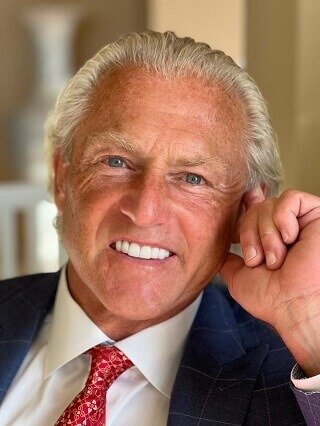A sustainable future requires protecting our oceans and ensuring seafood is abundant and healthy.Sustainable seafood practices are crucial for maintaining the delicate balance of marine ecosystems. Their protection protects the livelihoods of countless people who rely on the ocean for food.Chris Lischewski’s relationship with the seafood industry began early in his life. His childhood spent near Gloucester, Massachusetts, helped him develop a deep appreciation for the ocean’s bounty.This connection ignited a passion within him to pursue a career in the seafood industry. He could contribute to its sustainability and ensure seafood availability for generations to come.
Leadership at bumble bee foods
With his unwavering commitment to sustainable practices, Chris Lischewski’s impact on the seafood industry became evident during his tenure as the CEO of Bumble Bee Foods. Under his guidance, the company became a trailblazer in sustainable seafood sourcing and processing. During Lischewski’s tenure, the company focused more on long-term sustainability and environmental responsibility than short-term profits.Recognizing the urgency of the situation, he championed the adoption of sustainable practices throughout the supply chain. By working closely with fishermen, suppliers, and stakeholders, Lischewski fostered a culture of environmental consciousness that permeated every aspect of Bumble Bee Foods’ operations.
Understanding the significance of collaboration, Chris Lischewski forged partnerships with prominent environmental organizations that shared his vision for a sustainable seafood future. By joining forces with NGOs and conservation groups, he leveraged his collective expertise and resources to implement innovative initiatives and drive positive change within the industry. These collaborations not only raised awareness about sustainable seafood practices but also facilitated the development of new strategies to protect marine ecosystems.Chris Lischewski’s commitment to sustainability extended beyond mere rhetoric. He pioneered innovative sourcing practices that prioritized transparency, traceability, and accountability. By implementing advanced technology solutions, such as blockchain and data analytics, he ensured that the seafood products under the Bumble Bee Foods brand met the highest standards of sustainability. This transparency provided consumers with the assurance that the seafood they consumed was sourced responsibly.
Advocacy for responsible fishing practices
Chris Lischewski’s impact on the seafood industry also extended to advocating for responsible fishing practices. He actively engaged with policymakers, industry leaders, and regulatory bodies to promote sustainable fishing methods and discourage harmful practices. By lobbying for stricter regulations and supporting initiatives that protected endangered species and fragile habitats, he helped shape a more responsible and conscientious approach to fishing.Recognizing the urgent need to conserve marine ecosystems, Chris Lischewski initiated and supported numerous conservation initiatives. Through collaborations with marine research institutions and environmental organizations, he contributed to projects aimed at restoring and protecting vulnerable habitats.
He worked to protect biodiversity, reduce pollution, and mitigate climate change’s effects. This ensured a healthier future for both marine life and the seafood industry.Chris Lischewski understood that empowering consumers with knowledge was crucial for effecting meaningful change. He spearheaded campaigns and educational programs to raise awareness about sustainable seafood choices. By providing accessible information and promoting responsible consumption, he encouraged individuals to make informed decisions that supported sustainable fishing practices. Lischewski’s dedication to consumer education helped drive demand for sustainable seafood and incentivized the industry to adopt more sustainable practices.
Recognitions and awards for environmental achievements
Chris Lischewski’s tireless efforts and exceptional leadership did not go unnoticed. His profound impact on the seafood industry and commitment to sustainability earned him numerous accolades and awards. He was recognized as a visionary leader in sustainable seafood practices and applauded for his dedication to environmental stewardship. These accolades not only validated his approach but also catalyzed further positive change within the industry.His unwavering dedication, innovative thinking, and commitment to sustainability continue to motivate individuals to pursue careers that prioritize the health of our oceans. By sharing his knowledge and experiences, Chris Lischewski has left an indelible mark on the industry, shaping a new generation of professionals who are dedicated to building a sustainable seafood future.
Under Chris Lischewski’s leadership, Bumble Bee Foods underwent a profound transformation, becoming a beacon of sustainability within the seafood industry. Lischewski recognized that achieving sustainable practices required more than just policy changes; it necessitated the cultivation of a culture rooted in environmental responsibility throughout the organization.Lischewski understood that creating a culture of sustainability required a top-down approach. He actively engaged with employees at all levels, emphasizing the importance of their roles in driving positive change. By fostering a sense of shared purpose and responsibility, Lischewski motivated employees to embrace sustainable practices and incorporate them into their daily activities.
Conclusion
To ensure that sustainability became ingrained in the company’s DNA, Lischewski implemented training programs and workshops to educate employees about the principles and practices of sustainable seafood. By providing resources and empowering individuals to make sustainable choices, he encouraged a collective commitment to environmental stewardship.Lischewski also established clear goals and targets for sustainability within Bumble Bee Foods. These goals, such as reducing energy consumption, minimizing waste, and promoting responsible fishing, became key performance indicators that employees were held accountable for. By aligning sustainability goals with key business objectives, Lischewski demonstrated that environmental responsibility and financial success were not mutually exclusive.




